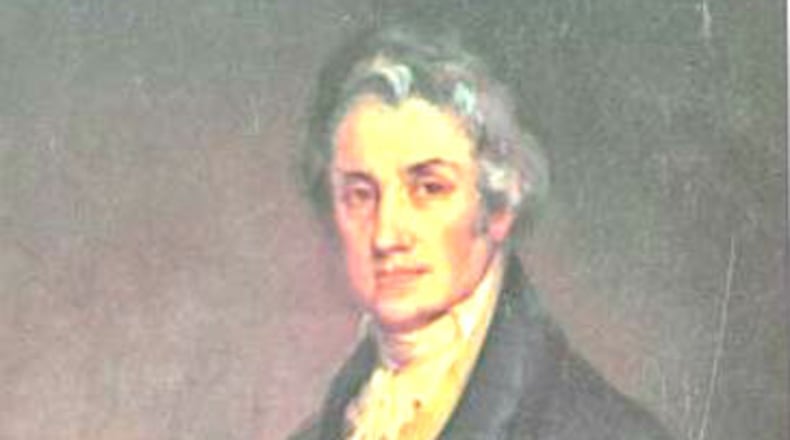In the latest merger of Georgia colleges approved by the Board of Regents, one of the four schools involved is Abraham Baldwin Agricultural College.
Who was Abraham Baldwin?
He was an early Georgian who had nothing to do with that college in Tifton, but plenty to do with higher education in Georgia.
Abraham Baldwin (1754-1807), according to the college's website and the New Georgia encyclopedia online, was one of two Georgia signers of the U.S. Constitution and the founder and first president of the University of Georgia.
The son of a Connecticut blacksmith, Baldwin enrolled at Yale University at age 14 and completed his degree four years later. He studied theology at Yale and became a minister, serving on George Washington’s staff as a chaplain during the Revolutionary War before studying law.
He moved to Georgia in 1783 to set up a law practice near Augusta. One year later he was elected to the Georgia House of Assembly and in 1787 represented Georgia at the Constitutional Convention.
After Baldwin turned down a position as a Yale professor of divinity, Georgia governor Lyman Hall persuaded him to accept the responsibility of creating an educational plan for secondary and higher education in the state. In the state Legislature, Baldwin developed a comprehensive educational plan that ultimately included land grants from the state to fund establishment of the University of Georgia (at the time also known as Franklin College) in Athens.
Baldwin was the first chief executive of the University of Georgia, from 1785 until 1801. He later was a member of the U.S. House of Representatives and the U.S. Senate.
In 1933 the Board of Regents of the University System of Georgia closed the Georgia State College for Men — one of a dozen Georgia “agricultural and mechanical schools” that had begun as public high schools early in the 20th century — and opened the institution as Abraham Baldwin Agricultural College, naming the college in Baldwin’s honor.



